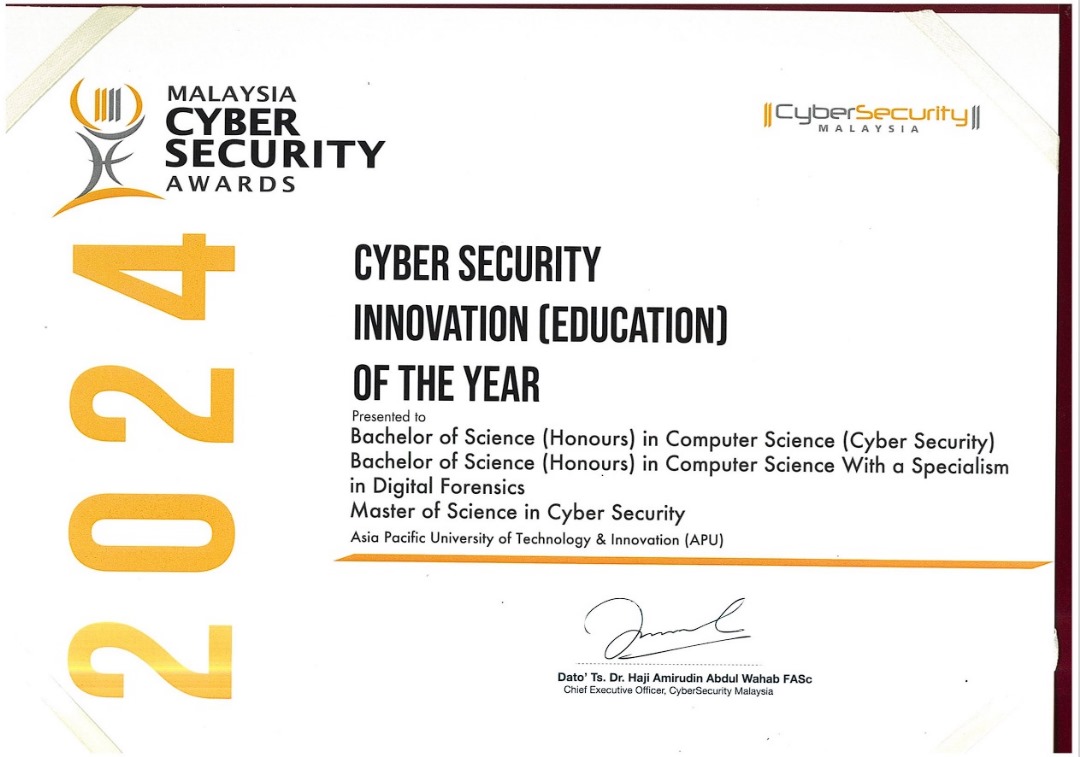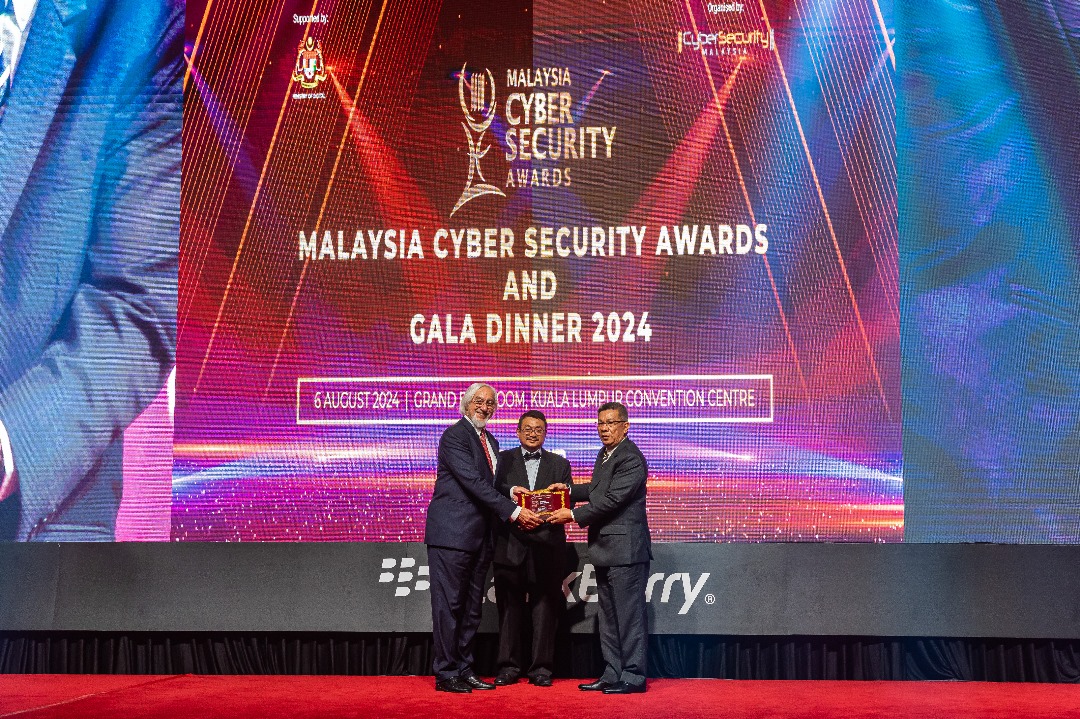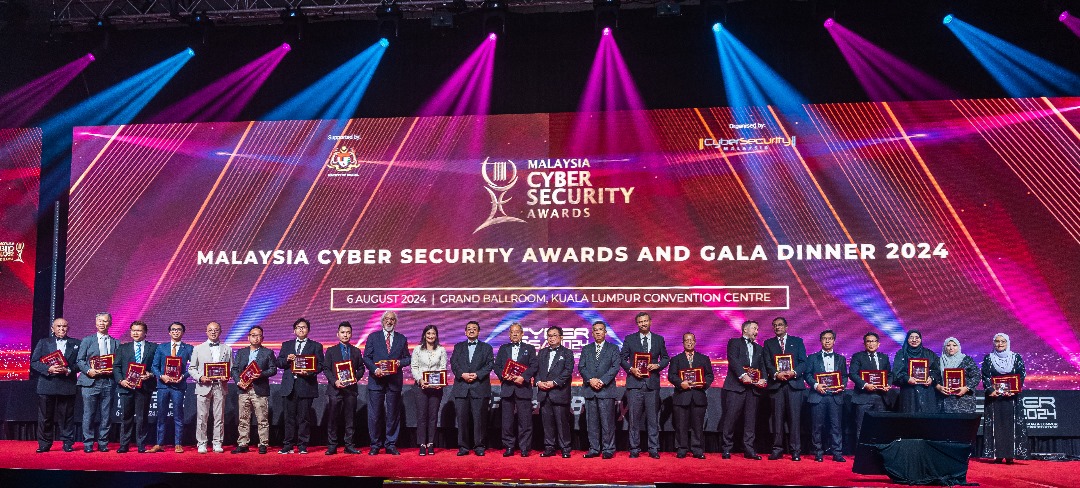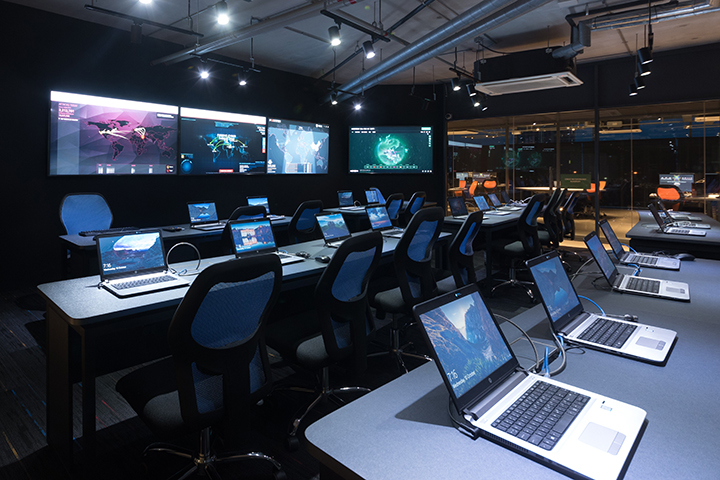Course Details

Dual Degree
APU-DMU Dual Degree Programme
Latest Technologies
More Than Just A Computer Science Degree
APU's BSc (Hons) In Computer Science with a specialism in Digital Forensics degree is designed to provide you an edge with the latest technologies that are in line with the Industrial Revolution 4.0.
Requirements
Admission Requirements
2 Passes in STPM in Science stream with minimum Grade C (GPA 2.0) in Mathematics and one Science or ICT Subject.
OR
2 Passes in STPM with minimum Grade C (GP 2.0) in any subject with a credit in Additional Mathematics at SPM.
OR
- 2 Passes in STPM with minimum Grade C (GP 2.0) in any subject with a credit in Mathematics and any one Science or ICT subjects at SPM. Candidates need to do a Pre-Requisite module in Further Mathematics or equivalent in the first semester of Degree Programme.
2 Passes (Grade A-D) in A-Level in Science stream with a Pass in Mathematics and one Science or ICT subject.
OR
2 Passes (Grade A-D) in A-Level with a Credit in Additional Mathematics at SPM/ O-Level/ IGCSE or equivalent.
OR
2 Passes (Grade A-D) in A-Level with a Credit in Mathematics and Science or ICT subjects at SPM/ O-Level/ IGCSE or equivalent. Candidates need to do a Pre-Requisite module in Further Mathematics or equivalent in the first semester of Degree Programme.
*Overseas qualification that are equivalent to 12th Grade/A Level/HSC are accepted.
- 5 Grade B Passes in UEC in Science Stream in any subject including Mathematics and one Science or ICT subject.
- 5 Grade B Passes in UEC in any subject including Additional Mathematics.
- 5 Grade B Passes in UEC in any subjects with Credit in Mathematics and Science or ICT Subject at SPM or equivalent. Candidates need to do a Pre-Requisite module in Further Mathematics or equivalent in the first semester of Degree Programme.
- A pass in Matriculation or Foundation studies with minimum CGPA of 2.0 with a Credit in Additional Mathematics at SPM/IGCSE/O-Level or its equivalent.
Note: The requirement for the Additional Mathematics can be exempted if the Matriculation or Foundation offers Mathematics module which is equivalent or higher requirement than the Additional Mathematics at SPM level.
OR
- A pass in Matriculation or Foundation studies with minimum CGPA of 2.0 and a Credit in Mathematics and Science or ICT subject at SPM/IGCSE/O-Level or its equivalent. Candidates need to do a Pre-Requisite module in Further Mathematics or equivalent in the first semester of Degree Programme.
- Diploma with a minimum CGPA of 2.50.
Note: Student with CGPA above 2.0 and below 2.5 may be accepted using rigorous assessment conducted by APU and subject to the approval of the Academic Board.
Any qualification that APU accepts as equivalent to the above.
The above entry requirements may differ for specific programmes based on the latest programme standards published by Malaysian Qualifications Agency (MQA). The qualification and entry requirements for the programmes will be determined based on the "Comparison List of Equivalency of International Qualifications with SPM (O-Levels equivalent) and STPM (A-Levels equivalent)" published by Malaysian Qualifications Agency (MQA).
- IELTS : 5.0
- TOEFL IBT : 40
- Pearson (PTE) : 47
- MUET : Band 3.5
For more information please click HERE
What We Teach
This programme is specifically designed to provide students with:
- The ability to develop technical knowledge, skills and background in the design and organisation of computer systems with an emphasis on digital forensics.
- The ability to critically evaluate design paradigms, languages, algorithms, and techniques used to perform advanced digital forensics investigation and incident response.
- The ability to evaluate and respond to opportunities for developing and exploiting new technologies with digital forensics methods and tools.
-
Degree Level 1
Students will learn fundamental skills required by every IT professional, and the basic understanding of programming, mathematical and algorithmic skills. A sound grasp of mathematical techniques and skills in algorithmic thinking are important pre-requisites for their second and third year studies in this area. Computer Architecture, operating systems, networks, databases, security and forensic technologies are the underlying platform of digital forensics investigation. Introduction to management introduces the third key area, understanding personal and organisational development, along with independent learning and team working skills.
Common Modules
- Introduction to Networking
- Systems Software and Computing Concepts
- Introduction to Databases
- Python Programming
- Systems Analysis and Design
- Integrated Computer Systems
- Fundamental of Entrepreneurship
Specialised Modules
- Digital Thinking and Innovation
- Mathematical Concepts for Computing
- Introduction to Artificial Intelligence
- Introduction to Security and Forensic Technology
-
Degree Level 2
A broader range of skills will be learnt, in which students will be involved in designing and implementing software, devising new ways to use computers and developing effective ways to solve computing problems. It spans a wide range, from theoretical and algorithmic foundations to cutting edge developments in all areas of computing. Successful professionals with a degree in computer science are flexible in performing a range of computing tasks, and extend theories and practice in every area of computing. In the second year, the core modules take development skills to the next level and deepen the understanding of platform technology, while specialised modules will allow them to go further into advanced forensic methods, ethical hacking and incident response.
Common Modules
- Innovation Process
- Research Methods for Computing & Technology
Specialised Modules
- Systems and Network Administration
- System Development Methods
- Object Oriented Development with Java
- Web Applications
- Concurrent Programming
- Computer Systems Low Level Technique
- Data Structures
- Advanced Forensics Methods
- Practical CTF Strategies
- Ethical Hacking & Incident Response
-
Internship (16 Weeks)
Students will undertake an Internship/Industrial Training for a minimum period of 16 weeks to prepare them for a smooth transition from the classroom to the working environment.
-
Degree Level 3
Students will make use of their previous studies and industrial experience to extend their familiarity in the field of computer science and to refine their personal and professional development. Students will move further into the focus on advanced programming techniques and algorithms, and evaluating applications at the frontiers of current technology. Specialised modules allows them to extend the capabilities developed from previous studies of forensics methods and incident response specifically in the area of advanced cyber security, penetration testing, mobile forensics, deep learning for intrusion detection as well as legal and professional practice in the cyber world. A final year project requires them to investigate and develop a solution for a real-world problem – they will demonstrate their ability to combine technical knowledge, critical thinking and analytical skills to produce a personal achievement portfolio.
Common Modules
- Project Management
- Venture Building
Specialised Modules
- Investigations in Digital Forensics
- Algorithmics
- User Experience
- Advanced Database Systems
- Penetration Testing
- Deep Learning for Intrusion Detection
- Advanced Cyber Security
- Legal & Professional Practice in the Cyber World
- Project in Digital Forensics
-
MQA Compulsory Subjects*
- Appreciation of Ethics and Civilisation (M’sian Students)
- Malay Communication Language (Int’l Students)
- Philosophy and Current Issues
- Workplace Professional Skills
- Integrity and Anti-corruption
- Co-Curriculum
(*All students are required to successfully complete these modules as stipulated by the Malaysian Qualification Agency.)
Note: The specialism will appear only in the academic transcript.

Computing & Technology
Collaborative Industrial Partners
Industry-academia collaboration is a strategic necessity to ensure the quality and relevance of our programmes. Through our Industry-Academia Collaboration (IAC) model, we design programmes in collaboration with inputs from the industry, that are also aligned with the government’s initiatives to address the shortage of skilled talents. Over the years, APU has established collaborations with key industry players worldwide; we have been delivering highly-relevant programmes that help us develop skilled and professional graduates for the workforce.
Cyber Security Innovation (Education) of the Year award
APU Wins Cyber Security Innovation (Education) of the Year 2024 by CyberSecurity Malaysia

We are thrilled to share the exciting news that APU has been honoured with the prestigious Cyber Security Innovation (Education) of the Year award by CyberSecurity Malaysia at the Malaysia Cyber Security Awards 2024 held at KLCC.


Facilities at APU
The APU Centre Point & Atrium serves as a melting pot of cultures from all over the world. Here, cultural activities are organised regularly at the campus, fostering long-lasting intercultural relationships among APU students, who come from over 130 countries.
Ready, Set, Go.
Whether you are locals or traveling here, we have the options for you to pursue your dreams.
RM32,900
Year 1
RM34,000
Year 2
RM35,300
Year 3
RM102,200
Total for Malaysian
RM33,600
(USD7,815)
Year 1
RM34,800
(USD8,095)
Year 2
RM36,200
(USD8,420)
Year 3
RM104,600
(USD24,330)
Total for International
Programme code : (R2/0613/6/0055)(06/29)(MQA/FA4622)
All information is correct at the time of publication, but is subject to change in the interest of continuing improvement.

APU Open Day
Learn More
Campus Facilities
Learn MoreEnglish Language Study
Korean Language
U-Start Programme
Want to know more ?
Let’s Connect